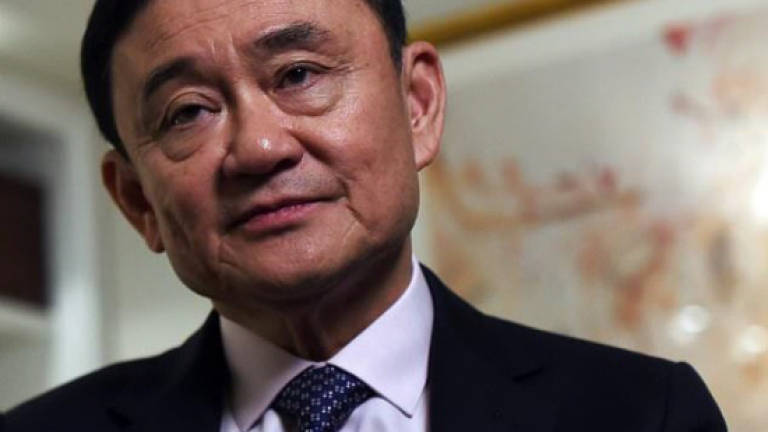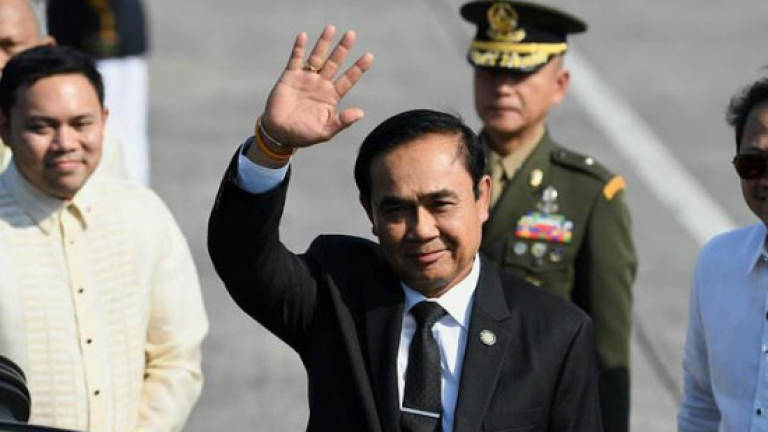Chaotic kingdom: Thailand's 'lost decade'



BANGKOK: On Friday ex-premier Yingluck Shinawatra failed to show at a court date that could have seen her jailed.
Speculation is rife that she may have fled the country injecting fresh drama into a recent history littered by coups, long periods of autocracy and brief flowerings of democracy.
Here is a timeline of Thailand's recent political history.
2001
Telecoms billionaire Thaksin Shinawatra wins elections in a landslide. He rolls out policies that are popular among the rural and urban poor, including universal healthcare, debt relief, and farming subsidies.
2005
Thaksin becomes the first elected Thai prime minister to complete a four-year term. He goes on to win a second landslide.
2006
Opposition to Thaksin builds, sparked by accusations of corruption and nepotism within his family as well as his administration's authoritarian streak.
Thaksin calls a snap election which is undermined by a large opposition boycott. The army seizes power while Thaksin is overseas – their first coup in 15-years.
2007
Fresh elections are held in December which are promptly won by a coalition of Thaksin allies, infuriating his opponents.
2008
Thaksin's enemies – primarily Bangkok's royalist middle classes and their allies among the city's business and military elite – mobilise with huge and sometimes deadly street protests.
They are dubbed the "Yellow Shirts" and famously go on to occupy Bangkok's main airports in a bid to unseat the government.
Courts kick two Thaksin-allied prime ministers from office and convict Thaksin in absentia of corruption, seizing more than US$1 billion (RM4.2 billion) in assets.
British-born Abhisit Vejjajiva of the opposition Democrat Party is appointed premier in a parliamentary vote with army backing.
2010
Thaksin's supporters rally en masse in Bangkok calling for fresh elections, arguing Abhisit's government never won power through the ballot box.
They are mainly made up of rural farmers from the Shinawatras' northern stronghold and Bangkok's working class and are dubbed the "Red Shirts".
Clashes between protesters and troops in April and May leave 90 dead, mostly demonstrators, in the worst civil violence in decades.
2011
Open elections are once again won by the Shinawatras with Thaksin's youngest sister Yingluck becoming Thailand's first female prime minister.
2013
Successors of the Yellow Shirts start holding mass protests against Yingluck's government.
Bloody protests ensue, their anger fuelled by her government's generous rice subsidy scheme and an attempt to push through a political amnesty that would allow Thaksin to return.
2014
As protests continue, Yingluck calls snap elections but her opponents block more than 10,000 polling stations. Tension builds. Yingluck and several cabinet ministers are removed from office by the Constitutional court.
Two weeks later army chief Prayut Chan-O-Cha, who repeatedly promised no coup was on the horizon, seizes power. The coup ushers in Thailand's most autocratic government in a generation.
2015
Yingluck is retroactively impeached by the junta's rubber stamp parliament over her government's rice subsidy, banning her from politics for five years.
2016
Thailand's junta holds a referendum on a new constitution which they say will reign in corrupt politicians and restore stability.
Critics say the new charter is a throwback to Thailand's autocratic past when democracy was "steered" by powerful unelected bodies and the military.
In October the country's widely revered King Bhumibol Adulyadej dies after seven decades on the throne, plunging Thailand into mourning.
The junta says fresh elections will be held in 2018.
2017
August 25: Yingluck skips a court date that could see her jailed for a decade over criminal negligence, sparking rumours that she has fled the country like her brother. — AFP